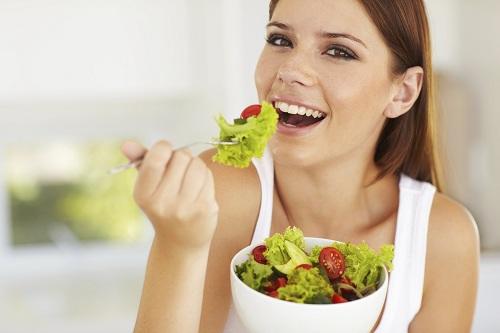As cloudy skies start to turn sunnier, you might be checking your stash of sunscreen. But you may also want to see what's in your kitchen, as some foods can help keep your skin youthful and healthy.
Axar.az reports citing CNN.
"There are definitely foods that we eat that can boost our ability to protect our skin from the sun," said Dr. Patricia Farris, a dermatologist and fellow of the American Academy of Dermatology.
In terms of protecting yourself from sun damage, sun protection is the most important, like wearing a broad-spectrum sunscreen with an SPF of at least 30, along with sunglasses and hats, "but I would put diet right behind that -- and that's because there are so many components that you can consume from foods that have all these different protective effects," said Dr. Rajani Katta, author of "Glow: The Dermatologist's Guide to a Whole Foods Younger Skin Diet."
Even if you're not sunbathing at the beach, you might have incidental sun exposure as you go about your day, "and so making sure that there are high levels of nutrients in your skin is really going to help limit that sun damage," Katta added.
There are several ways in which foods can affect your skin, protecting you against wrinkles, sunburn and skin cancer. But most of the mechanisms relate to antioxidants, antiaging compounds in foods that fight skin damage in different ways.
For example, carotenoids are antioxidants that give pigment to orange and red fruits and vegetables and go by names such as lycopene, lutein and beta carotene. Carotenoids, along with polyphenols like EGCG in green tea, resveratrol in red grapes and ellagic acid in berries, offer natural sun protection.
Carotenoids and polyphenols accumulate in skin and absorb sunlight of various wavelengths, according to Farris. But the skin benefits of these natural compounds are primarily due to their antioxidant activity. Along with antioxidants like vitamin C and vitamin E, they protect against free radical damage to cells that's generated from the sun's UV rays, which can cause skin aging.
For example, free radicals cause damage to proteins including collagen and elastin, which can lead to fine lines, wrinkles, sagging, loss of elasticity and brown spots, according to Katta. Free radicals can also damage lipids in cell membranes, which could lead to sagging as well as rough, dry skin.
When antioxidants stop free radicals in their tracks, they also prevent DNA damage, thereby decreasing mutations and reducing the risk of skin cancer, Katta explained.
And then there are antioxidants' anti-inflammatory effects, which protect against sunburn. For example, carotenoids, polyphenols, vitamins C and E and omega-3 fatty acids deliver anti-inflammatory benefits to skin, which helps to decrease the development of sunburn and may decrease the risk for skin cancer, Farris said.
In addition to providing antioxidant protection, fruits and vegetables boast fiber, which feed bacteria in your gut, making your skin's barrier less prone to irritation and less likely to lose moisture, Katta explained.
Tomatoes
Sweet potatoes and spinach
Berries, grapes, and pomegranate
Oranges, grapefruit, and kiwi
Fatty fish
Flaxseeds and walnuts





















































